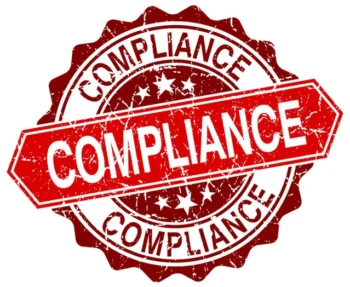Navigating legal issues is a crucial aspect of office management. Avoiding common legal pitfalls not only helps safeguard your office from potential lawsuits and penalties but also ensures smooth and compliant operations. Here’s a guide to help you steer clear of frequent legal issues and maintain a well-functioning office.
Understand Employment Law
Employment law encompasses a range of regulations related to hiring, firing, wages, and workplace practices. Common legal pitfalls include failing to comply with wage and hour laws, mishandling employee terminations, or overlooking workplace discrimination issues. To avoid these pitfalls, stay informed about employment laws and ensure your office’s policies and practices align with legal requirements. Regularly review your employment practices and consult with legal experts to ensure compliance.
Maintain Accurate Documentation
Proper documentation is essential for protecting your office against legal disputes. Maintain accurate records of employee contracts, performance reviews, disciplinary actions, and any communications related to employment matters. Good documentation practices provide evidence of fair treatment and help resolve disputes if they arise. Ensure that all documentation is stored securely and accessible when needed.
Ensure Data Protection and Privacy
Data protection and privacy regulations are critical for safeguarding sensitive information. Common pitfalls include failing to secure personal data, not complying with data protection laws, or mishandling data breaches. Implement robust data protection measures, such as encryption and secure storage, and stay updated on data protection regulations, like the General Data Protection Regulation (GDPR) or the California Consumer Privacy Act (CCPA). Regularly train employees on data privacy practices and have a clear plan for handling data breaches.
Avoid Breach of Contract
Breach of contract issues can arise from failing to fulfill contractual obligations or misunderstandings with clients, suppliers, or partners. To avoid these issues, ensure that all contracts are clear, detailed, and mutually agreed upon. Review contracts carefully before signing and consult with legal professionals to address any concerns. Maintain open communication with contract parties and address any potential issues proactively to prevent breaches.
Comply with Health and Safety Regulations
Health and safety regulations are designed to ensure a safe working environment. Common pitfalls include neglecting safety protocols, failing to provide proper training, or not addressing workplace hazards. Conduct regular safety audits and provide training to employees on health and safety practices. Implement and enforce safety policies and address any hazards promptly to maintain compliance with health and safety regulations.
Protect Intellectual Property
Intellectual property (IP) is valuable and must be protected to avoid legal disputes. Common IP issues include not securing trademarks, copyrights, or patents, and failing to address infringement concerns. Ensure that your office’s intellectual property is properly registered and protected. Monitor for potential infringements and take action to address any unauthorized use of your IP.
Follow Financial and Tax Regulations
Financial and tax regulations require accurate reporting and compliance with tax laws. Pitfalls include mishandling financial records, failing to comply with tax obligations, or overlooking financial reporting requirements. Maintain accurate and up-to-date financial records, adhere to tax filing deadlines, and consult with accountants or tax advisors to ensure compliance with financial regulations.
Address Workplace Discrimination and Harassment
Discrimination and harassment issues can lead to legal complications and damage your office’s reputation. Ensure that your office has clear anti-discrimination and harassment policies in place. Provide regular training on these topics and establish a procedure for reporting and addressing complaints. Act promptly to investigate and resolve any issues to maintain a respectful and compliant workplace.
Implement Clear Policies and Procedures
Clear policies and procedures help prevent legal issues by providing guidelines for various aspects of office management. Common pitfalls include having ambiguous or outdated policies. Develop and regularly update policies on topics such as leave, discipline, and workplace behavior. Ensure that policies are communicated effectively to all employees and enforced consistently.
Seek Legal Advice When Needed
When in doubt or facing complex legal issues, seek advice from legal professionals. Consulting with lawyers or legal experts can help you navigate legal challenges, ensure compliance, and avoid potential pitfalls. Regular legal reviews and advice can provide peace of mind and help you address any legal concerns proactively.
Final Thoughts
Avoiding common legal pitfalls is essential for maintaining a compliant and efficient office. By understanding employment laws, maintaining accurate documentation, ensuring data protection, avoiding breach of contract, complying with health and safety regulations, protecting intellectual property, following financial and tax regulations, addressing workplace discrimination and harassment, implementing clear policies, and seeking legal advice when needed, you can safeguard your office from legal issues. Staying informed and proactive helps create a well-managed and legally sound workplace.
